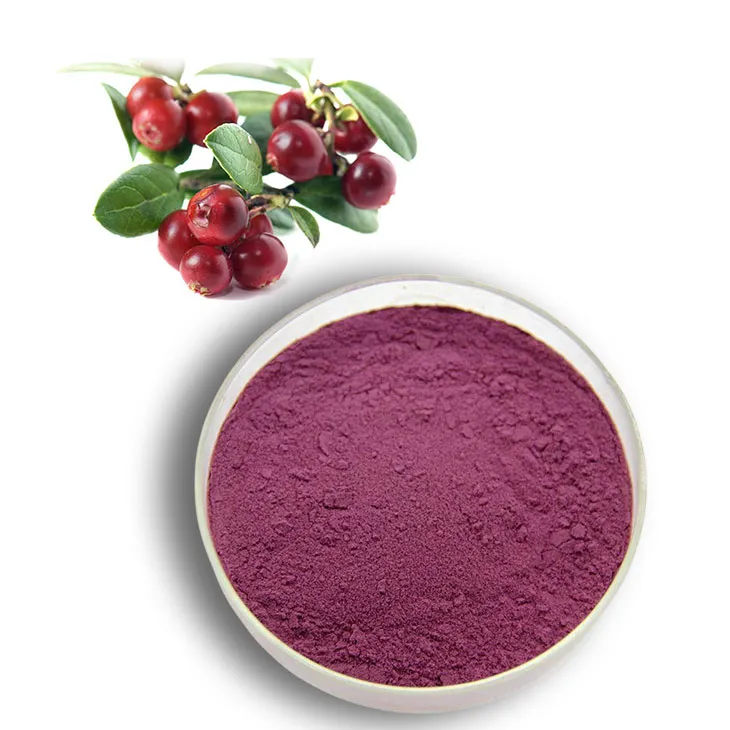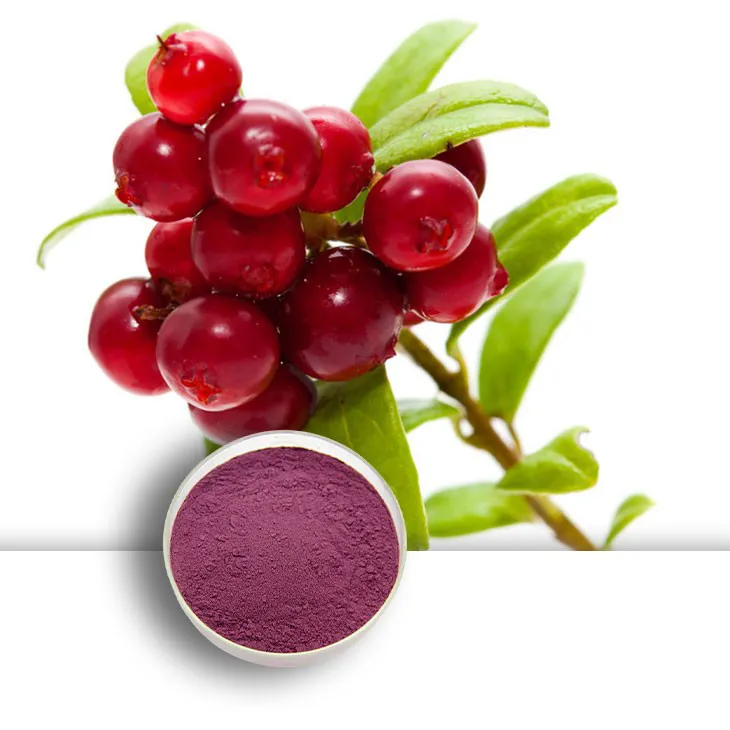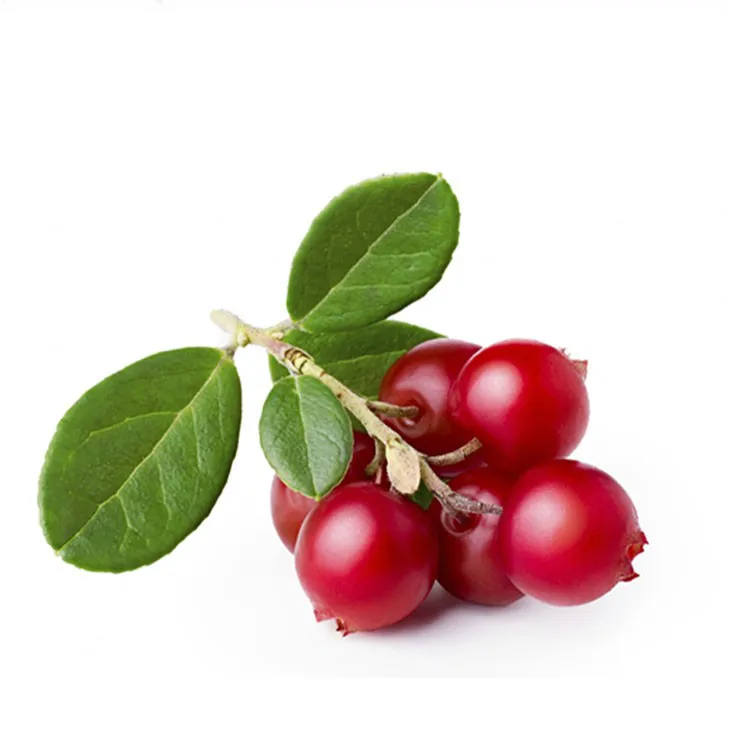- 0086-571-85302990
- sales@greenskybio.com
5 Great Reasons for Using Bilberry Extract in the Food Industry.
2024-12-10

1. Antioxidant Potency
Antioxidants play a crucial role in the food industry. Bilberry Extract is rich in antioxidants, which is one of its most significant advantages. Oxidative processes can have a detrimental impact on food quality. When foods are exposed to oxygen, light, or heat, oxidation occurs. This can lead to rancidity in fats, loss of nutritional value, and changes in flavor and color. For example, in oils and fats - common ingredients in many processed foods - oxidation can cause them to become spoiled quickly.
Bilberry Extract, with its antioxidant properties, acts as a safeguard against these oxidative processes. It has the ability to neutralize free radicals, which are highly reactive molecules that initiate and propagate oxidative reactions. By inhibiting the formation of free radicals or scavenging them once they are formed, Bilberry Extract helps to maintain the freshness, nutritional integrity, and overall quality of food products. This is especially important for products with a longer shelf - life, such as packaged snacks, bakery items, and canned goods.
In addition, antioxidants in bilberry extract can also protect other sensitive ingredients in food formulations. For instance, it can prevent the oxidation of vitamins and minerals, ensuring that the food retains its full nutritional value. This is highly appealing to consumers who are increasingly conscious of the nutritional content of the foods they consume.

2. Natural Colorant
In the food industry, color is a crucial factor in product appeal. Traditionally, many food products have relied on artificial colorants to achieve the desired color. However, there has been a growing trend towards the use of natural alternatives due to concerns about the potential health risks associated with artificial colorants.
Bilberry extract serves as an excellent natural colorant. It imparts a rich, deep color to food products, which can range from a beautiful purple - blue hue to a more subdued violet, depending on the concentration and the food matrix in which it is used. This natural color can enhance the visual appeal of a wide variety of foods, including beverages, confectionery, and dairy products.
For example, in the production of fruit - flavored yogurts, bilberry extract can be used to add a natural and appealing color that mimics the color of real fruits. In the case of juices and soft drinks, it can provide a more natural - looking color compared to artificial dyes, which may seem overly bright or artificial. Moreover, for health - conscious consumers, the use of bilberry extract as a colorant is a significant selling point. It signals that the product is made with natural ingredients and is potentially a healthier option compared to products containing artificial colorants.

3. Vision - Promoting Properties
Bilberries have long been associated with promoting good vision. This connection is based on scientific research that has identified certain compounds in bilberries, such as anthocyanins, which are believed to have beneficial effects on eye health.
When bilberry extract is incorporated into food products, it offers an opportunity to market these products as health - enhancing, particularly in relation to vision. For example, food manufacturers can target consumers who are concerned about maintaining good eyesight, such as those who spend long hours in front of digital screens or those with a family history of eye problems.
Snack foods, such as energy bars or dried fruit mixes, can be promoted as a convenient way to consume bilberry extract and potentially support eye health. Similarly, breakfast cereals or functional foods can highlight the presence of bilberry extract as an added benefit for vision. This can attract consumers who are not only interested in the taste and convenience of the food but also in its potential health - promoting properties.

4. Texture - Improving Abilities
The extract of bilberry can have a positive impact on the texture of certain foods. In some food formulations, it can act as a texturizing agent, enhancing the mouthfeel and overall texture of the product.
For example, in baked goods like muffins or cakes, bilberry extract can contribute to a softer and moister texture. It can also help in binding ingredients together, preventing the product from crumbling or falling apart easily. In gelatin - based desserts, bilberry extract can improve the gel - like consistency, making it more elastic and pleasant to eat.
In processed meats, it can have a similar effect, improving the cohesion of the meat particles and enhancing the overall texture of the product. This is important as texture plays a significant role in consumer acceptance of food products. A product with a good texture is more likely to be perceived as of high quality and enjoyable to eat.
5. Fit into the Concept of Natural and Pure Food Products
In recent years, there has been a significant shift in consumer preferences towards more natural and pure food products. Consumers are increasingly interested in foods that are minimally processed and contain natural ingredients.
Bilberry extract fits perfectly into this concept. As a natural ingredient derived from bilberries, it can be used to create food products that meet the demands of health - conscious and natural - ingredient - seeking consumers. Food manufacturers can use bilberry extract to develop products that are labeled as "natural" or "made with natural ingredients", which can attract a wide range of consumers.
For example, in the production of natural fruit spreads or jams, bilberry extract can be added not only for its flavor and color but also to enhance the natural profile of the product. In the case of herbal teas or infusions, bilberry extract can be combined with other natural ingredients to create a product that is perceived as pure and healthy. This ability to align with the trend towards natural and pure food products gives bilberry extract a distinct advantage in the food industry.
FAQ:
What is the antioxidant potency of bilberry extract?
The antioxidant potency of bilberry extract is significant. It can inhibit oxidative processes. Oxidation can cause spoilage and degradation of food quality, but the antioxidants in bilberry extract work to prevent this by neutralizing free radicals. This helps to keep the food fresh for a longer time and maintains its nutritional value.
How does bilberry extract act as a natural colorant?
Bilberry extract contains natural pigments that can provide color to food products. These pigments are a natural alternative to artificial colorants. It can give a range of colors depending on the concentration and the type of food it is added to, which is very appealing to consumers who are increasingly looking for more natural products.
Why is bilberry extract considered good for vision?
Bilberry extract is rich in compounds such as anthocyanins. These compounds have been associated with promoting good vision. They may help to protect the eyes from damage caused by factors like oxidative stress and improve blood circulation in the eyes, which is beneficial for maintaining healthy eyesight.
In what ways can bilberry extract improve the texture of certain foods?
Bilberry extract can interact with the components of certain foods at a molecular level. For example, it may bind with proteins or starches in a way that modifies the rheological properties of the food. This can lead to improvements in texture, such as making a product more smooth, firm or less sticky, depending on the nature of the food.
How does bilberry extract fit into the trend of natural ingredients in the food industry?
As consumers are more interested in natural ingredients, bilberry extract is a great choice. It is derived from a natural source, the bilberry. Using bilberry extract in food products meets the demand for cleaner labels and more natural and pure food products. It also aligns with the idea of reducing the use of synthetic additives in the food industry.
Related literature
- The Antioxidant Properties of Bilberry Extract in Food Preservation"
- "Bilberry Extract as a Natural Colorant: A Review"
- "The Role of Bilberry Extract in Promoting Eye Health and Its Application in Functional Foods"
- "Effects of Bilberry Extract on Food Texture: A Scientific Perspective"
- "Bilberry Extract and the Trend of Natural Ingredients in the Modern Food Industry"
- ▶ Hesperidin
- ▶ Citrus Bioflavonoids
- ▶ Plant Extract
- ▶ lycopene
- ▶ Diosmin
- ▶ Grape seed extract
- ▶ Sea buckthorn Juice Powder
- ▶ Fruit Juice Powder
- ▶ Hops Extract
- ▶ Artichoke Extract
- ▶ Mushroom extract
- ▶ Astaxanthin
- ▶ Green Tea Extract
- ▶ Curcumin
- ▶ Horse Chestnut Extract
- ▶ Other Product
- ▶ Boswellia Serrata Extract
- ▶ Resveratrol
- ▶ Marigold Extract
- ▶ Grape Leaf Extract
- ▶ New Product
- ▶ Aminolevulinic acid
- ▶ Cranberry Extract
- ▶ Red Yeast Rice
- ▶ Red Wine Extract
-
Black Pepper Extract
2024-12-10
-
Konjac Powder
2024-12-10
-
Kupilu Extract
2024-12-10
-
Resveratrol extract
2024-12-10
-
Oat Straw Extract Powder
2024-12-10
-
Sea buckthorn oil
2024-12-10
-
Golden Seal Extract
2024-12-10
-
Chasteberry Extract
2024-12-10
-
Calendula Extract
2024-12-10
-
Acai Berry Extract
2024-12-10





















